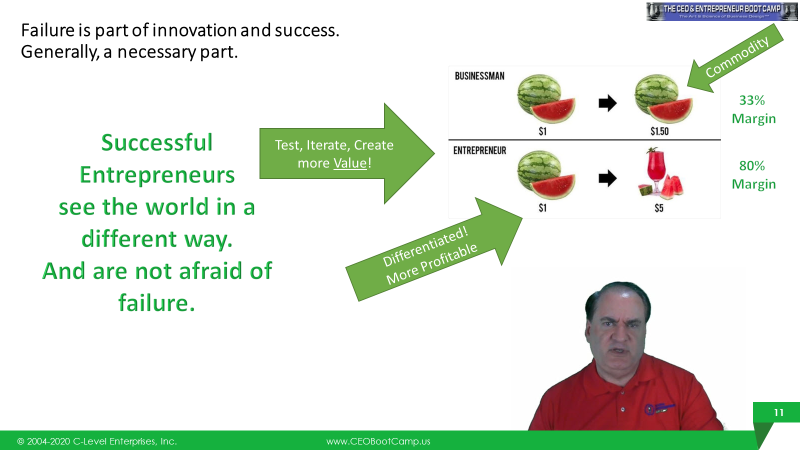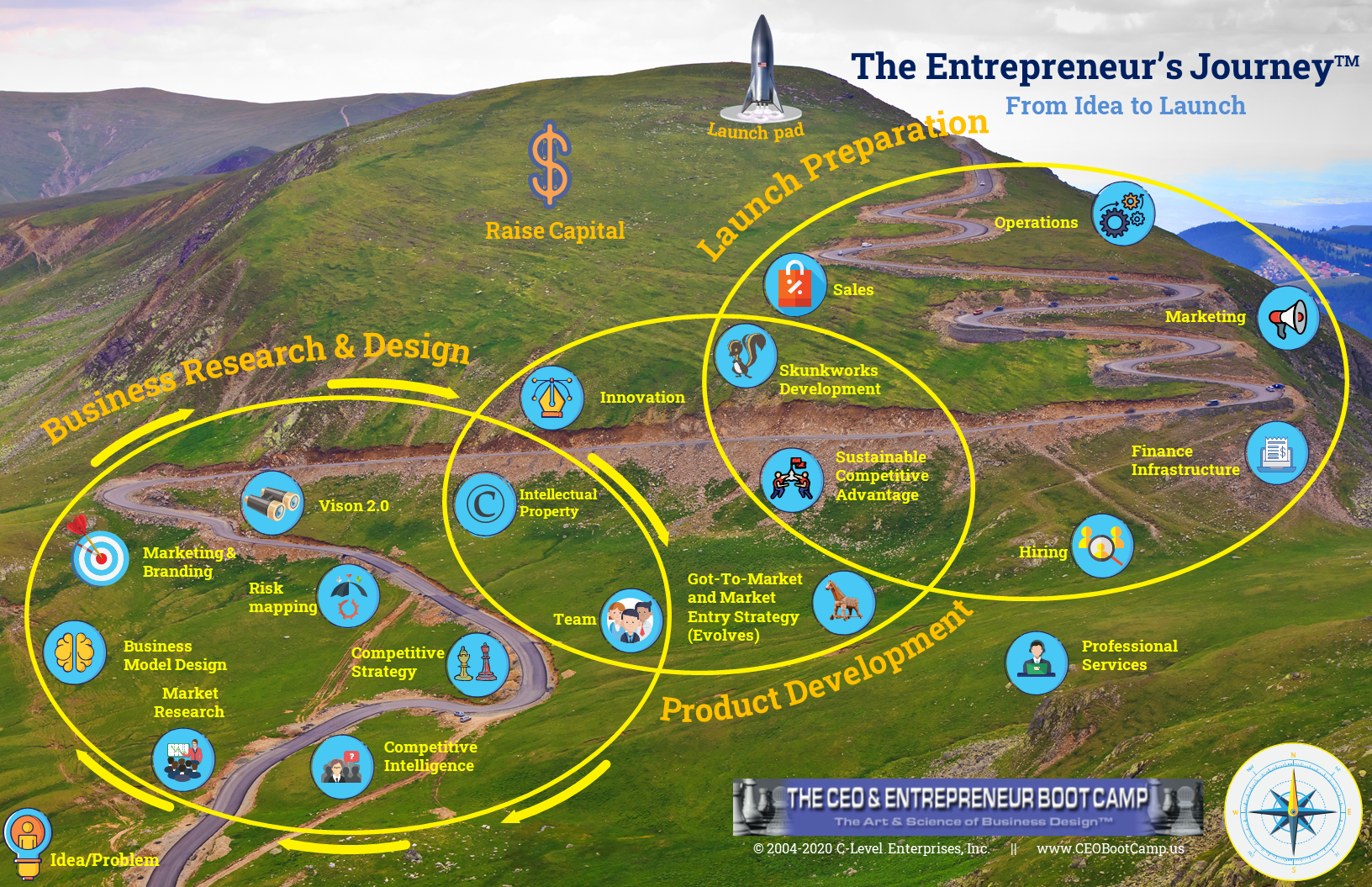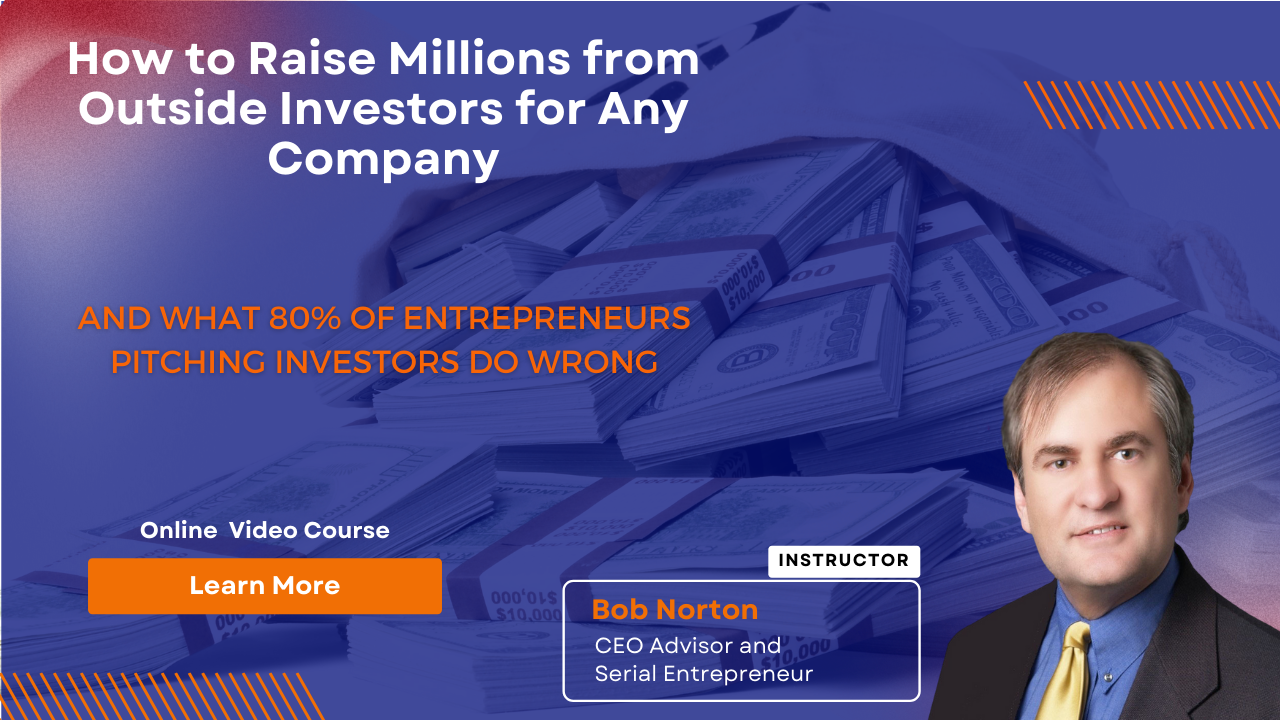Defining True Entrepreneurship
Posted by Robert Norton on

Let me first define Entrepreneurship in the way I think about it, which is not how most laymen might define it. Entrepreneurship is creating a business that does something new and different. It is not starting a restaurant, launching a franchise, or a dry-cleaning business. And certainly not selling your time as a freelancer. This is not to say these things are not valuable, or risky, they are all noble professions when done well. However, they are not creating something new for a society that creates new value, jobs, and hopefully even helps raise the standard of living for all in time. True entrepreneurship is more scalable because it is more unique and differentiated. Something that creates new possibilities and alternatives for ways of living.
The skills required to build a company are the most valuable skills in the world. What other skills can create potentially billions in value, thousands of jobs and a higher standard of living for people? At least in a moral and legal way.
This article will list the many skills that are required to launch an entrepreneurial venture that can be at least profitable, and hopefully scalable. And it will help you decide if you are ready to take on that challenge. Be advised that years of preparation and learning are usually necessary to be truly prepared to launch any company, even one that is not new and innovative. However, every new CEO has lots of on the job learning to do as well as no one can be fully prepared for this adventure.
Building a successful company to $5 million, $20 million, or $100 million is the most fulfilling thing you can ever do. It creates jobs, wealth, value for customers and it can even mean progress in the standard of living of people. It is a very noble thing when done with integrity and helps thousands of people. Only Entrepreneurs can drive a higher standard of living for people. No government can ever do that as they do not create any value, they just skim value off the top of the productivity of their citizens. A government job is a tax, while a job created via entrepreneurship creates value for people by their choice. If it did not, the company would not survive long-term. And inevitably, in time, wealth is created for the Founders and key employees if it is managed properly and scaled.
Innovations can be simple and still bootstrap a company. However, true entrepreneurship that will have a big impact and growth potential must develop some sustainable competitive advantage (SCA). This rule is pretty firm as competitors can generally copy most innovations, especially in service businesses. So, the innovation shown below is just minor innovation, but not likely sustainable entrepreneurship unless this company could constantly and creatively keep inventing new products and experiences. Innovation should be part of the culture of every company in this rapidly changing world. Every company must adapt to new technologies, globalization, and changing customer desires.

There may be some exceptions to this general rule, but I would not be likely to call them true entrepreneurial ventures. Thinking of entrepreneurship this way raises the bar and gets us all thinking bigger. This may be just semantics, but it frames how we think. And what I want to convey is that entrepreneurship means breaking new ground and doing something no one else ever accomplished. It requires innovation. True entrepreneurship always has a twist on the business model and differentiation. And a way to make a profit so it can grow and, hopefully, create more innovation too.
Rare exceptions that can grow into substantial organizations with good management include some service businesses like legal, accounting, and body shops that essentially just aggregate bodies under one roof to provide commodity services. These generally need excellence in management and execution to grow large. H & R Block is a good example. They aggregate and train people to do tax returns each year (a commodity service) with steep seasonal supply and demand fluctuations. No doubt they have figured out and made a science of the many processes needed to recruit train, manage and market their services each season. Those processes are valuable intellectual property which they created and evolved over many years that may provide some level of sustainable competitive advantage, especially if they continue to innovate and protect their intellectual property, and develop IT and other systems to support these processes. Every company must have a culture that encourages innovation. This also means that failure must be acceptable, as failure is required to innovate.
Click here, to learn more
Service businesses are not normally differentiated in any major way from their competitors but can win and grow market share through superior execution, or better internal processes, that may help them be more efficient or better marketers. These are harder and slower ways to create wealth generally and will rarely create significant innovation, or better ways of doing things that can be protected well. Hence, they can only price their services like the competition and have no meaningful edge in the marketplace.
Larger successes will always have differentiated offerings, which allow for stronger profit margins. This attribute allows for the attraction of capital and top people who can be attracted because this allows the stock, or stock options, that they can earn to generate a life-changing wealth opportunity. Hence, differentiation equals better profits and higher growth potential too. That is just the nature of capitalism. Having capital, when it is well-managed, can be a self-fulfilling prophecy of success too. As your ability to try new things, attract people, and ultimately innovate are all improved when you have access to capital. Money is needed to generate more money usually. Especially if you want to do it in less than a decade.
A true Entrepreneur will assemble resources in a new way so that the value created exceeds the resources input. This means a profit will be generated that can fund growth and further innovation. That is the Darwinism of a capitalist society.
Now I do want to dispel you from a common belief that many people have about entrepreneurship, which is just not true, or at least exceptionally rare. That is the Founder/Entrepreneur can do it alone and keep all the wealth generated. This is a total myth. Nothing prevents people from being successful entrepreneurs as well as greed. If you think you can build a large company without sharing the wealth created with that team you will most likely fail. No one gets out of bed every morning saying, “Another great day to work extra-long hours to make my boss rich”. And anyone smart and experienced enough to help you will expect to get a fair share of the value they create, as determined by the marketplace, not by you. Entrepreneurs get wealthy by creating more value, innovation, and scale, not by keeping all the rewards, control, and ownership of a venture. See my article “Using Equity to Recruit Your Team” here.

The list of mistakes made by Entrepreneurs that fail is always the same. Most are easily avoidable and if avoided would spread out the time companies have to innovate and develop better offerings and then raise success rates significantly.
The vast majority of entrepreneurs, who must have strong egos even to try starting a company, fail to get the Mentors, Advisors, Consultants and others that could guide them to success. Or get them there much faster. And they also fail to do the homework required to tune their product to fill a need before building it. This must be done in the company design process, not the launch. This mistake alone represents forty-three percent of startup failures according to a survey conducted by CB Insights interviewing failed Entrepreneurs.
Delays can mean death for a startup. And once cash is burning time becomes your enemy. The company design process can be done with little cash burn and the discipline to stay in design until you get it right is a huge factor. Rushing design is always a mistake. Patience and discipline are required to do these things well.
Below is a diagram that shows the process of launching a company and the things that should always be done. Most should be completed by the Founders before the first employee is hired. Most entrepreneurs skip many of these steps at their peril and pay the price months or years later with slow progress, bankruptcy and/or an inability to attract capital and top people. They have already failed and just do not know it yet. They end up investing in a product that cannot be monetized, or scrambling to change it later, often doubling or tripling the cost. And diminishing their chances of success considerably.

Odds are that you did not learn these in your past career, or at least most of them. So, you need to source people who can help with these. Often just small slices of someone’s time to help in the design phase.
Click here to view parts two and three of this short video series. This will walk you through the map to success above, and discuss many of the tools taught at The CEO and Entrepreneur Boot Camp. We believe doing these things well can at least triple your chances of a successful launch of any new company or product.
Taking The CEO and Entrepreneur Boot Camp is the best way we know to have a successful launch. We believe it is even better than getting an MBA because The Boot Camp is faster, cheaper and more practical. And it comes from decades of experience and the best ideas of hundreds of top entrepreneurs, authors and experts. I hope to meet you there someday in our online classes and coaching sessions.
Join the course How to Raise Millions from Outside Investors
Bob Norton is a long-time Serial Entrepreneur and CEO with four exits that returned over $1 billion to investors. He has trained, coached and advised over 1,000 CEOs since 2002. And is Founder of The CEO Boot Camp™ and Entrepreneurship University™. Mr. Norton works with companies to triple their chances of success in launching new companies and products. And helps established companies scale faster using the six AirTight Management™ systems. And helps companies successfully raise capital.
What can we help you with today? Scaling, training, consulting, coaching?
Call (619) SCALE06 or (619) 722-5306 9am-6pm CT
Or Schedule a free 30-minute strategy session by clicking here.



